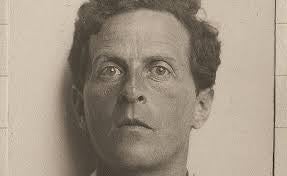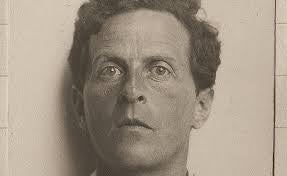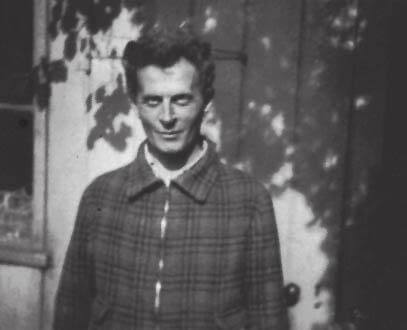Ludwig Wittgenstein and the Limits of Thinking

Ludwig Wittgenstein was a Prussian philosopher who’s known for his essays about language. Today, people consider him to be one of the most influential philosophers of the 20th century. As it turns out, his life story is almost as interesting as his philosophies.
Wittgenstein was born in Vienna and later became a British citizen. He was also a mathematician, linguist, logician, and gardener. He was a disciple of Bertrand Russell at the University of Cambridge, where he later became a professor. His book Tractatus logico-philosophicus made a big splash. Nevertheless, in his later publications, The Blue and Brown Books and Philosophical Investigations, both posthumous works, he harshly criticized his first book.

His first years
Wittgenstein was the youngest of nine siblings, born to one of the richest families in the Empire. He grew up in an environment that was intensely focused on artistic and cultural achievements. Consequently, the Wittgenstein house attracted an intellectual group of people, especially musicians. In this context, it was natural for Ludwig to develop music skills.
“That man will be revolutionary who can revolutionize himself.”
-Ludwig Wittgenstein-
Wittgenstein studied at Linz high school. One of Wittgenstein’s fellow students was none other than Adolf Hitler. Some people believe that Hitler is talking about Wittgenstein in his book Mein Kampf when he mentions a young Jewish guy who couldn’t be trusted. While there’s no evidence to support this theory, some believe that it was the beginning of Hitler’s anti-Semitism.
The beginning of his studies
Even though he went to a philosophy university, Wittgenstein started studying aeronautical engineering. He even filed for a patent on an engine that would later be used as the foundation for helicopter engines. Even so, while he was in England, he started to be interested in the philosophy of mathematics.
“Nothing is so difficult as not deceiving oneself.”
-Ludwig Wittgenstein-
His interest in philosophy led him to meet Bertrand Russell, one of the most famous philosophers at the time. Russell guided his studies, but they had a tumultuous relationship. Wittgenstein asked Russell if he was an idiot or not. He said if he was an idiot, he would continue to work as an aeronautical engineer. If not, he would dedicate his life to philosophy. Russell asked him to write an essay, and after reading it, he said, “You shouldn’t study aeronautical engineering”.
Tractatus logico-philosophicus
After his father’s death, Wittgenstein renounced his inheritance and went to live in Norway. There, he built a cabin where he could live in isolation. He spent a year here before World War I began and he enlisted in the Austrian artillery. After four years, the Italian army captured him. He was imprisoned for a year and liberated at the end of the war. He decided to return to Vienna to finish his thesis with Bertrand Russell.
“The limits of my language mean the limits of my world.”
-Ludwig Wittgenstein-
Tractatus logico-philosophicus was Wittgenstein’s masterpiece. The book is a detailed explanation of his worldview and the things that exist in him. He also analyzed language and logic problems. Wittgenstein theorized that the limits of the world are defined by language. While his work was well-received, Wittgenstein as a person continued to be rather polemic. One story goes that after Russell and Moore, two of the most important logicians at the time, congratulated him for his book, he patted their backs and said, “You don’t understand anything, nor will you”. His abrasive character was a constant throughout his life. He even went so far as to throw a fire poker at Karl Popper at a conference.

Philosophical research
Later, Wittgenstein spent several years teaching until he retired and went to live in a monastery. There, he worked as a gardener. Five years later, he met Mortiz Schlick, who sparked his interest in philosophy again. As a result, he started working on Tractatus again, because he considered it to be unfinished. Wittgenstein also started to give classes at a university and wrote Philosophical Investigations.
In Philosophical Investigations, he wrote about philosophy not as a theory, but as a constant activity. He also retracted what he had written in Tractatus. He said that his worldview had changed, and he proposed new theories about language games. His book became a cornerstone of the philosophy of language and continues to be today.
When World War II started, Wittgenstein joined up as a nurse in an attempt to go to the Soviet Union with his boyfriend, but it didn’t work out because he wanted to become a worker and they would only let him practice as a professor. Later, he would also give up his place at the university, move to Ireland for a time, and later to London. There, he died from prostate cancer at the age of sixty-two.
As you can see, Ludwig Wittgenstein was a controversial figure for his entire life. In fact, scholars still debate whether he was a genius or just an eccentric. What we can say for sure is that no one was indifferent to him, or his work.
Ludwig Wittgenstein was a Prussian philosopher who’s known for his essays about language. Today, people consider him to be one of the most influential philosophers of the 20th century. As it turns out, his life story is almost as interesting as his philosophies.
Wittgenstein was born in Vienna and later became a British citizen. He was also a mathematician, linguist, logician, and gardener. He was a disciple of Bertrand Russell at the University of Cambridge, where he later became a professor. His book Tractatus logico-philosophicus made a big splash. Nevertheless, in his later publications, The Blue and Brown Books and Philosophical Investigations, both posthumous works, he harshly criticized his first book.

His first years
Wittgenstein was the youngest of nine siblings, born to one of the richest families in the Empire. He grew up in an environment that was intensely focused on artistic and cultural achievements. Consequently, the Wittgenstein house attracted an intellectual group of people, especially musicians. In this context, it was natural for Ludwig to develop music skills.
“That man will be revolutionary who can revolutionize himself.”
-Ludwig Wittgenstein-
Wittgenstein studied at Linz high school. One of Wittgenstein’s fellow students was none other than Adolf Hitler. Some people believe that Hitler is talking about Wittgenstein in his book Mein Kampf when he mentions a young Jewish guy who couldn’t be trusted. While there’s no evidence to support this theory, some believe that it was the beginning of Hitler’s anti-Semitism.
The beginning of his studies
Even though he went to a philosophy university, Wittgenstein started studying aeronautical engineering. He even filed for a patent on an engine that would later be used as the foundation for helicopter engines. Even so, while he was in England, he started to be interested in the philosophy of mathematics.
“Nothing is so difficult as not deceiving oneself.”
-Ludwig Wittgenstein-
His interest in philosophy led him to meet Bertrand Russell, one of the most famous philosophers at the time. Russell guided his studies, but they had a tumultuous relationship. Wittgenstein asked Russell if he was an idiot or not. He said if he was an idiot, he would continue to work as an aeronautical engineer. If not, he would dedicate his life to philosophy. Russell asked him to write an essay, and after reading it, he said, “You shouldn’t study aeronautical engineering”.
Tractatus logico-philosophicus
After his father’s death, Wittgenstein renounced his inheritance and went to live in Norway. There, he built a cabin where he could live in isolation. He spent a year here before World War I began and he enlisted in the Austrian artillery. After four years, the Italian army captured him. He was imprisoned for a year and liberated at the end of the war. He decided to return to Vienna to finish his thesis with Bertrand Russell.
“The limits of my language mean the limits of my world.”
-Ludwig Wittgenstein-
Tractatus logico-philosophicus was Wittgenstein’s masterpiece. The book is a detailed explanation of his worldview and the things that exist in him. He also analyzed language and logic problems. Wittgenstein theorized that the limits of the world are defined by language. While his work was well-received, Wittgenstein as a person continued to be rather polemic. One story goes that after Russell and Moore, two of the most important logicians at the time, congratulated him for his book, he patted their backs and said, “You don’t understand anything, nor will you”. His abrasive character was a constant throughout his life. He even went so far as to throw a fire poker at Karl Popper at a conference.

Philosophical research
Later, Wittgenstein spent several years teaching until he retired and went to live in a monastery. There, he worked as a gardener. Five years later, he met Mortiz Schlick, who sparked his interest in philosophy again. As a result, he started working on Tractatus again, because he considered it to be unfinished. Wittgenstein also started to give classes at a university and wrote Philosophical Investigations.
In Philosophical Investigations, he wrote about philosophy not as a theory, but as a constant activity. He also retracted what he had written in Tractatus. He said that his worldview had changed, and he proposed new theories about language games. His book became a cornerstone of the philosophy of language and continues to be today.
When World War II started, Wittgenstein joined up as a nurse in an attempt to go to the Soviet Union with his boyfriend, but it didn’t work out because he wanted to become a worker and they would only let him practice as a professor. Later, he would also give up his place at the university, move to Ireland for a time, and later to London. There, he died from prostate cancer at the age of sixty-two.
As you can see, Ludwig Wittgenstein was a controversial figure for his entire life. In fact, scholars still debate whether he was a genius or just an eccentric. What we can say for sure is that no one was indifferent to him, or his work.
All cited sources were thoroughly reviewed by our team to ensure their quality, reliability, currency, and validity. The bibliography of this article was considered reliable and of academic or scientific accuracy.
Heaton, J. y Groves, J. (2002). Wittgenstein para principiantes. Buenos Aires: Era Naciente – Documentales Ilustrados.
Sádaba, J. (1980).Conocer a Wittgenstein y su obra. Barcelona: Dopesa.
This text is provided for informational purposes only and does not replace consultation with a professional. If in doubt, consult your specialist.







